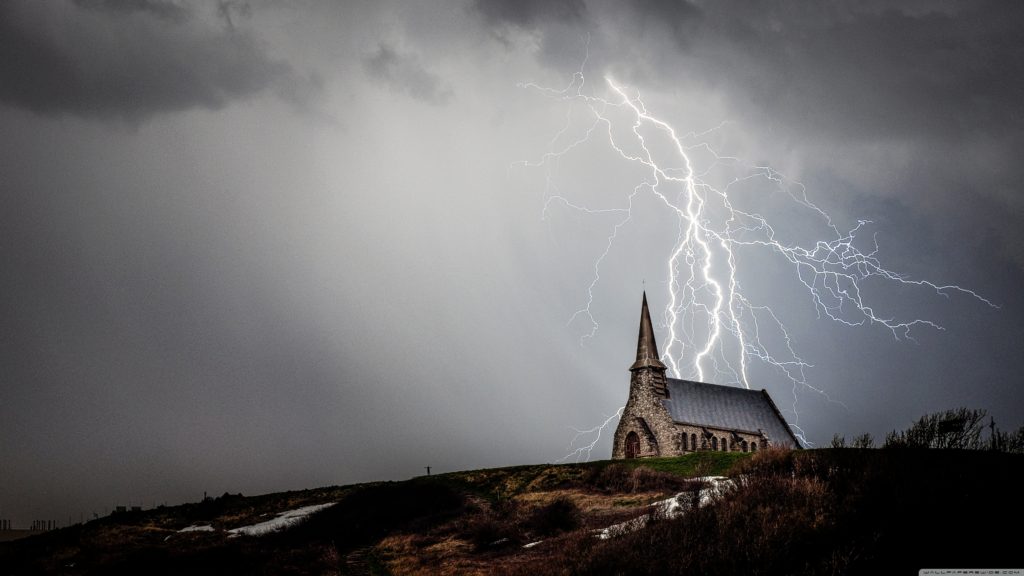The Lord is Never Late
by Jared Wilson
Reading in my friend Michael Kelley’s book Wednesdays Were Pretty Normal, about his family’s journey of faith through their young son’s battle with leukemia, I found a passage of reflection taking me back in time. I do not know the fear and grief of having a child with a life-threatening illness, but when Michael writes —I prayed. I petitioned. I cried. And I felt . . . nothing. Emptiness. Despair. Isolation. Darkness. Where was He, this God who so loved the world? Where was the great Healer? We needed Him there, in that cubicle of a hospital room. Doing something. Healing something. Springing into action. I didn’t need a Jesus that was sleeping in the boat while the storms raged around His friends. I needed a Jesus who was turning over the tables of sickness and disease and calling out cancerous cells like they were demons.
— this I know.
I was taken back to the smell of the guest bedroom carpet, where my nose had been many hours of many nights, my eyes wetting the fabric as I cried out to God. You ever groaned? If you have, you’d know. I planted my face in that floor and prayed guttural one-word prayers til I couldn’t speak any more. The lullaby music from my daughter’s room across the hall haunted me. I felt alone, unloved, unaccepted, and unacceptable. But I knew I deserved it all, so I was trying to be as submissive to God’s discipline as I could. But it hurt. Oh God it hurt.
I was clinging to the hem of Christ’s garment in desperation in those days, beyond begging him for the restoration of my marriage, beyond begging him for forgiveness of my sins, beyond begging him to take away my thoughts of suicide. I just wanted to know he was there.
The Bible says “faith is the assurance of things hoped for, the conviction of things not seen” (Heb. 11:1). And by his grace I had that faith. A tiny sliver of it, to be sure, but I had it. Half a mustard seed maybe, clenched in my fist. All visible evidence to the contrary, I was still too afraid of the alternative. I was too scared to believe God didn’t exist, that he didn’t love me, that he didn’t care. I was exhausted, but my stubbornness and that speck of faith persisted even in the spiritual silence.
And then one night I heard the voice of the Spirit, not audibly mind you, but clearly, straight to my heart, applying the word of the gospel to me: “I love you, and I approve of you.” Because I had been exposing my mind to the gospel at that time, I knew he meant that he approved of me “in Christ,” not that he approved of my sin or righteousness; that much was clear by the devastation I was in. Like the prodigal son, “I came to my senses.”
In my pained estimation in those dark days, the Lord was moving much too slowly, but I knew in that moment that he is not slow in keeping his promises (2 Pet. 3:9). He was holding me all along, and his reviving word came right on time. I pray I will remember this in dark days to come.
The Lord is never late.
Don’t give up.
For still the vision awaits its appointed time;
it hastens to the end—it will not lie.
If it seems slow, wait for it;
it will surely come; it will not delay.
— Habakkuk 2:3
“Though the fig tree does not bud
and there are no grapes on the vines,
though the olive crop fails
and the fields produce no food,
though there are no sheep in the pen
and no cattle in the stalls,
yet I will rejoice in the Lord,
I will be joyful in God my Savior.
The Sovereign Lord is my strength;
he makes my feet like the feet of a deer,
he enables me to tread on the heights.”
Habakkuk 3:17-19 (NIV)

